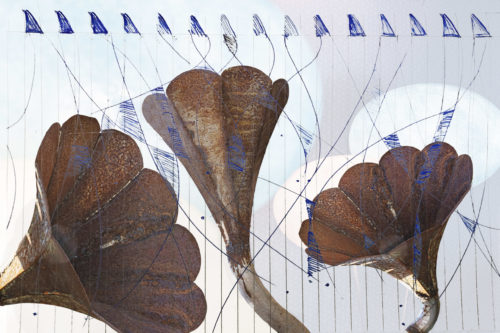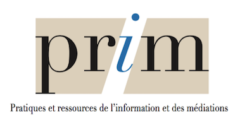Information and mediation practices and resources (Prim)


EA 7503 - PRIM IUT de Tours
Site J. Luthier 29, rue du Pont-Volant
Tours 37082
France
The PRIM team (Pratiques et ressources de l'information et des médiations) is a research unit (EA 7503) in information and communication sciences at the University of Tours. PRIM conducts research into informational and communicational mediations, focusing on the players, processes and mechanisms involved, as well as the products produced.
This is done through two themes:
“Cultural Fabrics and Communication”
The ‘Cultural Fabrics and Communication’ theme aims to develop research into a range of cultural practices and objects - mainly digital, religious and heritage - that are at the heart of contemporary communication issues. The aim is to link the study of a spectrum of diversified cultural practices with an analysis of the resources and mediations that give them observable form, while highlighting the multiple dimensions (social, technical, semiological, historical, economic or political) that characterise their communicational complexities.
The work will be organised and hosted along three lines. On the one hand, the question of ‘Digital circulation and “situated knowledge”’ aims to probe the digital spaces and devices of our time (websites, social networks, platforms, applications) in order to analyse various modes of circulation (of knowledge, discourse and content) that create or recount shared experiences and re-examine ways of creating culture or community (particularly around memes and network creations, shared and situated resources, or personal or professional practices mediated online).
On the other hand, work on ‘Religion and communication’ studies the structuring role of communication across several religious domains (Catholic, Islamic, post-Buddhist in particular) by analysing both specific cultural practices (rituals, beliefs, imagery) and localised fields of action (political programmes, ethical debates, societal visions).
Finally, the ‘Heritage and Mediations’ research perspective aims to develop research on experiences, mechanisms, mediations and knowledge that shape concrete heritage communication practices, based on surveys that may focus on various cultural sites, whether regional (royal castles, chapels or churches) or national (urban itineraries).
In line with the desire to examine culture in all its anthropo-social complexity, these three areas will provide a deeper understanding of the ‘cultural factories’ of the digital, the religious and the heritage.
“Media issues”
The place and status of the media in today's society is emerging in a dual context of digital convergence - that of the multimedia information experience and the reconstruction of a transmedia narrative - and audience segmentation, particularly for marketing purposes, but also in the context of increased interaction with information professionals. These developments can be understood in terms of misinformation and the means of verifying information available to the public. In fact, they are being appropriated by the public to such an extent that we are seeing the emergence of new intermediary figures of citizen investigators, who may be either protesting or cooperating. This theme seeks to better grasp and understand the motivations and objectives of those who participate in these new online verification spaces. To this end, it intends to continue its observations of the fact-checking services of the media themselves, in order to understand what is at stake in relation to audiences who, for some of them, are committed to breaking away from the mainstream and systematically challenging the media. At a time when identity and social tensions go hand in hand with challenges to media that are seen as hegemonic and controlled by the political and economic elites, it is essential to continue these investigations.
These phenomena reinforce the need for a better understanding of the media, in the context of digitisation, the work of information professionals and the practices of media and information literacy (MII). The latter includes media appropriation (college radio stations, school newspapers), which can hardly be purely educational. The new digital uses of information and the observation that a number of young people are consuming news that is essentially second-hand or pre-digested (via social networks), seem to call for a rethink of media and information education, updated in the light of contemporary digital practices. These are areas that we still need to explore, in particular by analysing the contribution and effectiveness of EMI systems in relation to different target audiences.
These are the media issues, linked to the digital transformation of the media, that this research theme aims to address.
